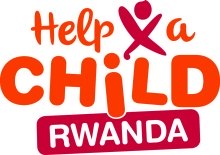Terms of Reference (ToR) for consultancy service
Programme evaluation
Organization: Help a Child Rwanda
Programme: Child-Centred Community Development Program (CCCD)
Areas of implementation: Rusizi, Rwamagana and Bugesera
Organizational Background
Help a Child is a Christian international relief and development organization operating in Rwanda since 2008. Through esteemed partnerships with organizations like AEE and EPR, we empower vulnerable communities to sustainably improve their living conditions, providing hope for children in need, their families, and entire communities.
Mission: Help a Child provides a future for children in need, their families, and their entire communities.
Vision: We envision a world where every child—regardless of social, political, religious, ethnic, or economic background—lives with dignity, love, and a promising future.
Christian Identity: Inspired by the teachings of Jesus Christ, we believe in passing on God’s love, showing mercy, pursuing justice, fostering reconciliation, and being responsible stewards. These principles guide our efforts in all circumstances.
Program Background and Scope
Help a Child Rwanda (HACR) implements a holistic, child-centered community development program (CCCD) that focuses on three key areas: early childhood development (ECD), youth and work, and community resilience. This program is structured in phases lasting seven years, prioritizing the well-being of children and ensuring that it is only phased out when communities and stakeholders have developed sufficient capacity to maintain a safe and protective environment for children.
The current phase of the CCCD program began in 2015-2016 and is scheduled to conclude in 2024. To guide future programming, Help a Child seeks to engage an individual consultant or consultancy firm to document successful strategies, lessons learned, and areas that fell short of expectations during this phase. Insights from this evaluation will be crucial for refining strategies and enhancing our impact in the upcoming program, Turakura.
Help a Child's principal office is located in Kigali, and the CCCD program operates across three field offices of partners in the districts of Rwamagana, Rusizi, and Bugesera. The consultant will be expected to visit project sites in these districts to capture program performance and gather insights from direct beneficiaries.
Areas of Focus in the CCCD Program Evaluation
Program Child-Centeredness
- Wellbeing of Children: Evaluate the program's support for the overall wellbeing of children.
- Family and Community Engagement: Assess the role of parents and the community in fostering a nurturing environment.
- Access to Services: Examine the availability and quality of integrated ECD services for children.
Community Ownership, Empowerment, and Sustainability
- Analyze the extent of community empowerment to sustain program achievements.
- Evaluate qualitative outcomes like increased community confidence, local leadership roles, and community-driven initiatives.
- Assess the successful transfer of skills and knowledge to community members.
- Examine community cohesion, self-esteem, and the effectiveness of local structures.
- Investigate the program's impact on household economic resilience, including poverty reduction and social cohesion.
Evaluation Tools and Methodology
The consultant will develop their own methodology but is encouraged to use participatory PMEAL tools, such as the Child Status Index (CSI) and the Community Empowerment Scorecard. Data collection should include surveys and interviews with community members, as well as case studies that demonstrate the impacts of community ownership.
Consultant Recruitment
Help a Child is looking to engage a qualified consultant or consultancy firm to conduct the evaluation of the CCCD program. The selected consultant will be responsible for developing a comprehensive evaluation methodology and utilizing appropriate tools.
Key Responsibilities:
- Design and implement an evaluation framework focusing on child-centeredness, community ownership, empowerment, and sustainability.
- Analyze data from participatory PMEAL tools.
- Conduct surveys and interviews to gather insights on ownership and empowerment.
- Develop case studies illustrating positive impacts.
- Present findings and recommendations for future programming.
Qualifications:
- Proven experience in program evaluation, particularly in community development and child welfare.
- Familiarity with participatory evaluation methods.
- Strong analytical skills with the ability to synthesize complex information.
- A PhD in a relevant field (e.g., project management, rural development, sociology) for the team lead.
- A Master’s degree in education or an advanced degree in Early Childhood Education, along with experience in project evaluation.
- Excellent communication skills in both English and Kinyarwanda.
Deliverables for the Consultancy
- Inception Report: Detailed methodology, tools, timelines, and stakeholder engagement plan.
- Data Collection Tools: Customized surveys, interview guides, and focus group frameworks.
- Data Collection: Conduct at least eighteen surveys and interviews in each of the three districts to gather both qualitative and quantitative data.
- Case Studies: At least six case studies highlighting program positive impact and community ownership outcomes.
- Data Analysis Report: Comprehensive analysis of collected data.
- Draft Evaluation Report: Summary of findings and preliminary recommendations for feedback.
- Final Evaluation Report: Incorporating feedback, including an executive summary, detailed findings, and future recommendations.
- Presentation of Findings: Summary presentation to Help a Child’s management and stakeholders.
- Stakeholder Feedback Sessions: Facilitation of discussions on findings.
- Follow-Up Action Plan: Action plan for implementing recommendations.
Timeline: The consultant is expected to deliver all outputs within 30 working days (approximately 2 months) from the date of contract signing.
Application Process
Interested firms or individual candidates should submit their company profiles or CVs, a cover letter outlining relevant experience, and a consultancy plan with cost estimates to info@hacrwanda.org by 25th October 2024. Please use the subject line "Consultancy Application: CCCD Program Evaluation."
